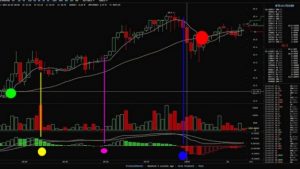Investment products
- Access the U.S. market with a wide range of trading and investment choices
- Some of the lowest pricing in the industry
- Local and U.S.-based, multilingual support from registered investment professionals



Keep an eye on unusual options flow on a symbol-by-symbol basis
Price: 30,000 USD
Access 2,000+ ETFs across a wide range of asset classes and fund companies Use the Schwab Personalized Portfolio Builder tool to easily create a
Download(Trail): Link download product trail Buy now
Access 2,000+ ETFs across a wide range of asset classes and fund companies Use the Schwab Personalized Portfolio Builder tool to easily create a
Trade marketing is a strategy focused on wholesalers, retailers and distributors rather than consumers, with the goal of increasing demand with supply chain partners and getting products in front of consumers. Common trade marketing activities include going to trade shows and offering promotions to potential partners.

n recent years, a number of new developments have changed the face of trade and marketing. The relationship between suppliers and distributors has evolved along the lines of trade marketing: a methodology that enables both parties to benefit from a well-tended relationship. What is the role of the trade marketer and how can he improve relations between business-to-business partners? Our business school takes a look at trade marketing.
In French, this is known as distribution marketing. This discipline brings together all the marketing strategies implemented in the context of product distribution and supply chains.
In simple terms, trade marketing is where the supplier/distributor relationship lies. This is also known as distribution marketing in B2B sales strategies. The supplier must consider the distributor as a customer. Products are optimised to meet the needs of the end consumer, at the end of the chain.
Trade marketing is therefore one aspect of marketing, but it has its own specific features. It has a specific objective: to reduce costs as far as possible, optimise profits and improve sales and product efficiency. It is therefore part of the response to the needs of the end customer, while strengthening the relationship between intermediaries (distributors).
The concept of trade marketing emerged in the 1980s in the context of distribution. It first appeared in a book by Étienne Thil and Claude Baroux.
The early 1990s saw the emergence of hard-discounting, as well as a change in consumer habits, with consumers becoming less loyal to a particular brand. In the midst of the crisis, manufacturers decided to change their strategy and began to target distributors. The distributors, for their part, are concentrating on their positioning in terms of their target, while the manufacturers are focusing on their commercial relations with the intermediary customer, the distributor.
Trade marketing is evolving with the rise of modern marketing. It provides a concrete response to the needs of retailers and distributors. This adaptation to changes in consumer behaviour is overturning the standards hitherto seen in the marketing professions, and opening up a host of opportunities in all markets.
Trade marketing fulfils several objectives thanks to its business-to-business merchandising approach: :
More specifically, it involves optimising the supply chain to reduce costs and provide effective solutions for both distributors and manufacturers.
The consumer is one of the primary beneficiaries of this trade marketing strategy. They are better supported in their purchasing process. Product suggestions are made both online and in-store.
Trade marketing operations can also lead to promotions from which the end consumer can benefit.
Distributors can increase their sales volume, and therefore their turnover, through trade marketing, which encourages the promotion of certain products.
The aim is a win-win partnership: the supplier's sales increase in tandem with those of the distributor.
This type of operation also has other beneficial effects, such as additional advertising revenue and attractive promotional campaigns to build customer loyalty.

Keep an eye on unusual options flow on a symbol-by-symbol basis
Price: 30,000 USD
Access 2,000+ ETFs across a wide range of asset classes and fund companies Use the Schwab Personalized Portfolio Builder tool to easily create a

See which analysts are worth listening to, and which are not
Price: 15,000 USD
Trade futures and futures options for US$2.25 per contract Access platforms with specialized tools for trading futures Receive extensive research designed for ...

Dive deep into corporate fundamentals, KPIs and growth
Price: 50,000 USD
Trade listed stocks online for US$0 commissions1 Simplify stock selection with tools and research informed by Schwab experts Real-time trade analysis from ...